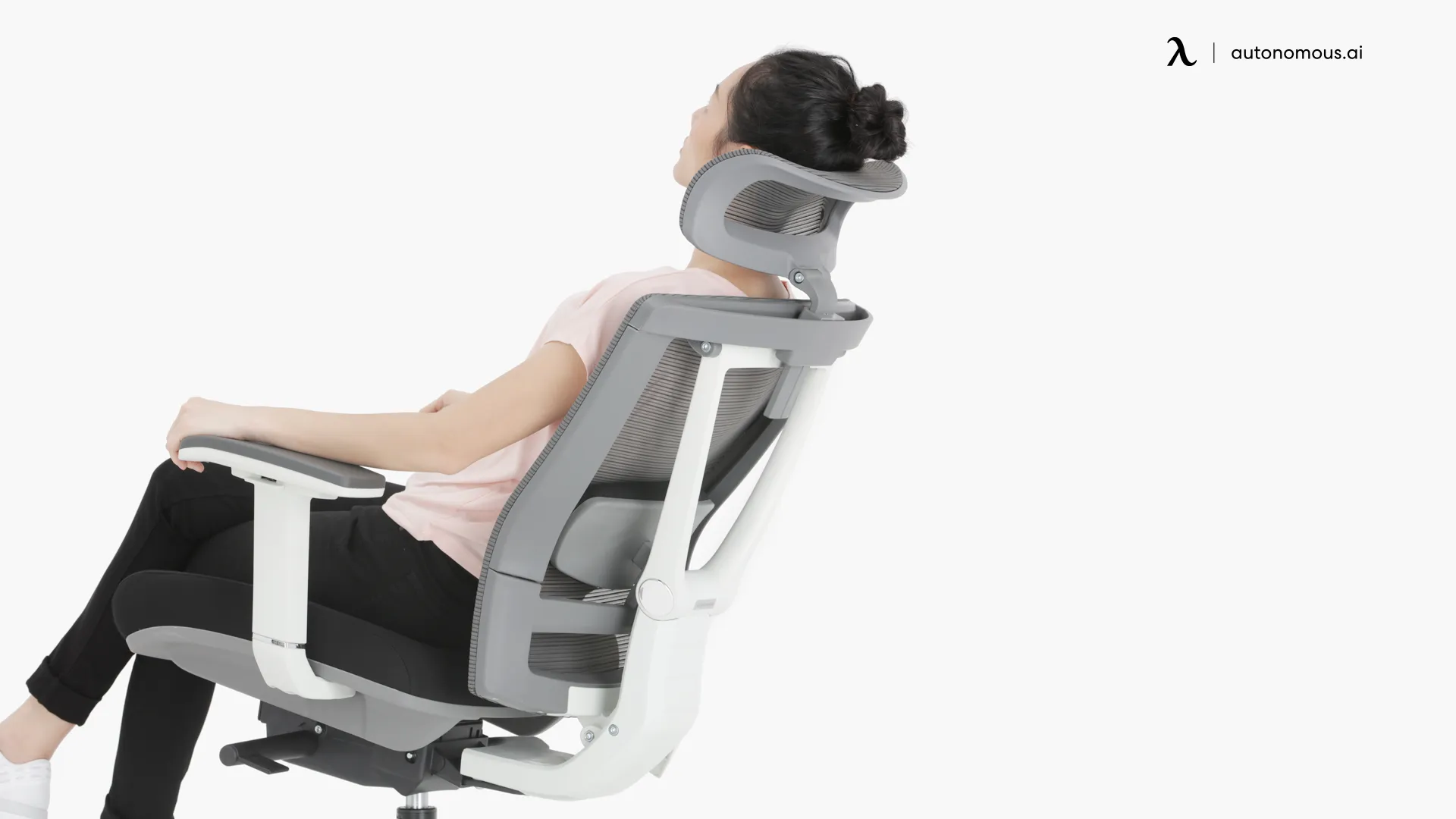.webp)
Table of Contents
Resting calorie burn is the amount of energy your body uses even when you’re not moving. It keeps essential functions like breathing, circulation, and temperature control running around the clock. This is why your body continues to burn calories even when you’re sleeping, reading, or relaxing.
Knowing your resting calorie burn helps you understand how many calories you burn at rest each day and gives a clearer picture of your overall energy balance, making it easier to manage weight and daily activity goals.
What Is My Resting Calorie Burn?
Your resting calorie burn is the number of calories your body uses to keep vital functions running even when you’re completely at rest. This includes breathing, circulating blood, repairing cells, regulating body temperature, and keeping your brain active. It’s the energy you burn simply by existing, whether you’re lying down, sitting still, or sleeping.
This number varies from person to person. Factors like weight, age, gender, and muscle mass all affect how many calories you burn at rest. People with more lean muscle generally burn more calories naturally, while smaller bodies may burn less. Understanding how this differs from active calories and the distinctions between active vs. resting calories helps paint a clearer picture of your daily energy use.
Your average resting calorie burn can also be influenced by how well your body processes energy. Supporting your ability to boost metabolism may help maintain a more stable daily energy output. Once you know this baseline, you can use it to guide your nutrition, activity, and recovery habits more effectively.

How To Calculate Resting Calorie Burn?
Your resting calorie burn reflects how many calories your body uses at rest to sustain essential functions like breathing, blood circulation, and temperature regulation. Estimating this number helps you understand how many calories you burn naturally each day and gives you a solid baseline for setting nutrition and activity goals.
There are several reliable formulas to calculate this number depending on the information you have:
1. Mifflin-St Jeor Equation (Most commonly used)
Men: RMR=(10 * weight in kg) + (6.25 * height in cm) − (5 * age in years) + 5
Women: BMR = (10 * weight in kg) + (6.25 * height in cm) - (5 * age in years) - 161
Best for: General use, simple and accurate for most adults.
2. Harris-Benedict Equation (Traditional method)
Men: BMR = 88.362 + (13.397 * weight in kg) + (4.799 * height in cm) − (5.677 * age in years)
Women: BMR = 447.593 + (9.247 * weight in kg) + (3.098 * height in cm) - (4.330 * age in years)
Best for: General population, widely used in clinical and fitness settings.
3. Katch–McArdle Formula (Advanced — for lean body mass)
All genders:
RMR = 370+(21.6 * lean body mass in kg)
Lean body mass = Total weight * (1 − body fat percentage)
Best for: Athletes or individuals who know their body fat percentage. This formula can give a more personalized estimate of how many resting calories you burn a day, especially if your muscle mass is above or below average.
Tip: If you just want a quick estimate, start with Mifflin–St Jeor. For more accuracy, especially if you’re tracking performance or body composition changes, Katch–McArdle can provide a more tailored result.

Resting Calorie Burn Chart By Weight
Your resting calorie burn depends strongly on your body weight and composition. People with more lean mass typically burn more energy at rest than those with less muscle. This chart gives a general estimate of calories burned in an hour and over a full day, based on average metabolic rates.
Weight (lbs) | Weight (kg) | Calories Burned in 1 Hour (Resting) | Calories Burned in 24 Hours (Resting) |
100 lbs | 45 kg | ~45 kcal | ~1,080 kcal |
125 lbs | 57 kg | ~57 kcal | ~1,368 kcal |
150 lbs | 68 kg | ~68 kcal | ~1,632 kcal |
175 lbs | 79 kg | ~79 kcal | ~1,896 kcal |
200 lbs | 91 kg | ~91 kcal | ~2,184 kcal |
Resting Calorie Burn vs. BMR vs. TDEE
When learning how many calories you burn at rest, it’s important to understand how this number fits into the bigger picture of daily energy use. Terms like resting calorie burn, BMR, and TDEE are often used together, but they describe different stages of energy expenditure.
Term | What It Means | What It Includes | Typical Use |
Resting Calorie Burn (RMR) | Calories burned at rest to maintain essential functions | Breathing, circulation, temperature control, cell repair, brain activity | Baseline energy use, weight management, calorie calculator |
BMR (Basal Metabolic Rate) | Minimum energy needed to keep your body alive in complete rest (stricter than RMR) | Basic life-sustaining processes under controlled conditions (e.g., lying still, fasting) | Clinical testing, advanced nutrition or medical assessments |
TDEE (Total Daily Energy Expenditure) | Total calories burned in a full day | RMR/BMR + daily activity (walking, exercising, working, fidgeting, etc.) | Daily calorie target setting for weight maintenance, fat loss, or muscle gain |
- Resting calorie burn (RMR) gives the baseline of how many calories you burn by doing nothing.
- BMR is similar but slightly lower because it’s measured under stricter, controlled conditions.
- TDEE combines your resting burn with movement, exercise, and daily habits, showing your total energy needs.
Differences in daily movement, such as calories burned standing vs. sitting, also play a role in how much energy you use beyond your resting burn. For most people, RMR accounts for about 60–70% of daily energy expenditure, making it the largest component of TDEE.
What Affects Your Resting Calorie Burn
Your resting calorie burn isn’t a fixed number. It can change over time depending on your body and lifestyle. Understanding these factors helps explain why two people of the same weight can burn different amounts of calories at rest.
- Body Weight and Composition
People with more lean muscle tend to burn more energy at rest than those with higher body fat. Muscle tissue is more metabolically active, which means it uses more calories to maintain itself even when you’re doing nothing. This plays a major role in how many resting calories you burn a day.
- Age and Gender
Metabolism gradually slows with age, which can lower calories burned resting over time. Gender can also influence this number, as men typically have higher lean mass, which raises their baseline calorie use.
- Hormonal and Metabolic Health
Hormones such as thyroid and insulin affect how your body uses energy. Even subtle shifts can impact how many calories you burn naturally. Factors like stress and sleep quality can also influence your metabolism.
.webp)
- Sleep Quality
Restful sleep supports steady energy use, while poor sleep can reduce your average resting calorie burn. REM sleep, in particular, increases brain activity, which leads to slightly higher energy use during the night.
- Calorie Intake and Dieting History
Severe or prolonged calorie restriction for weight loss can slow metabolism, causing your body to conserve energy. That’s why long-term crash dieting may lower resting calorie burn.
- Temperature and Environment
Colder environments can slightly increase calories burned in an hour as your body works to maintain its core temperature, while warmer environments may reduce this effect.
These factors explain why your resting calorie burn may shift over time even if your weight stays the same. Tracking changes in sleep, muscle mass, or diet can help you maintain a stable metabolism and understand how to increase resting calorie burn healthily.
How To Increase Resting Calorie Burn Naturally
While your resting calorie burn is partly determined by genetics, there are practical ways to gently boost it over time. Most of these changes involve supporting your metabolism through daily habits, not quick fixes.
- Build More Lean Muscle
Strength training is one of the most effective ways to raise how many resting calories you burn a day. Muscle tissue requires more energy than fat to maintain, so even when you’re not active, your body naturally uses more calories.
- Stay Consistently Active
You don’t need intense workouts every day to make a difference. Light movement throughout the day, like standing, walking, or stretching, can elevate your calories burned resting by increasing non-exercise activity thermogenesis (NEAT).
Incorporating active sitting or using an active chair can also help your body stay slightly engaged, supporting better posture and steady energy use even while working.
- Improve Sleep Quality
Sleep plays a bigger role in average resting calorie burn than many people realize. During REM sleep, your brain activity rises, which increases energy use slightly. A person weighing around 150 lbs burns roughly 60–70 calories per hour while asleep.
Consistently getting enough deep, quality sleep helps your metabolism stay balanced. Poor sleep, on the other hand, can reduce how many calories you burn naturally and affect hunger regulation.

- Eat Enough — But Smart
Extreme calorie restriction can lower resting calorie burn, as your body adapts to conserve energy. Eating balanced meals with adequate protein can help maintain lean mass and support a stable metabolism.
- Keep Your Body Moving At Work
If you have a desk job, using an adjustable standing desk can contribute to how many calories you burn at rest over the course of a day. eyond calorie burn, the health benefits of a standing desk also support better circulation, posture, and energy throughout the workday.
- Manage Stress and Recovery
Chronic stress can affect hormones that regulate how many calories you burn naturally. Consistent recovery routines like stretching, breathing exercises, or light movement help keep your energy use stable.
These habits won’t transform your resting calorie burn overnight, but they can build lasting improvements in how your body uses energy. Over time, this can make it easier to maintain a healthy weight, feel more energized, and support better overall health.
FAQs
1. How many calories do I burn at rest a day?
The number of calories you burn at rest each day depends on your resting metabolic rate (RMR), which is influenced by factors like weight, age, and body composition. On average, most adults burn 1,200–2,000 calories per day at rest. This amount reflects energy used for essential functions like breathing, circulation, and cell repair.
2. What is my resting calorie expenditure?
Your resting calorie expenditure, also called resting calorie burn, is the number of calories your body uses at rest to maintain basic functions like breathing and circulation. On average, a person burns 0.48 calories per pound of body weight per hour, or about 45–100 calories per hour, depending on their weight, age, and muscle mass. Standing or fidgeting can increase this number slightly compared to sitting still.
3. How many calories can you burn in an hour of activity?
The number of calories burned in an hour depends on the intensity of your activity. Moderate weight training burns roughly 180–266 calories per hour, while vigorous exercise can increase that to 360–532 calories per hour. Heavier individuals typically burn more energy over the same duration.
4. What is the calorie burning rate while sleeping?
Most people burn around 50–70 calories per hour while sleeping, depending on their body weight and basal metabolic rate (BMR). A 150-pound person typically burns about 68 calories per hour, which equals roughly 544 calories over eight hours of sleep. This happens because essential functions like breathing, temperature regulation, and brain activity continue during rest.
5. How many calories do you naturally burn during the day?
The total number of calories you naturally burn daily is called TDEE (Total Daily Energy Expenditure). It includes resting calorie burn plus all physical movement and daily activity. Depending on lifestyle and body size, this number typically ranges from 1,800 to 3,000 calories per day for most adults.

6. Is sleeping calorie-burning?
Yes. Sleeping burns calories because your body keeps vital systems running, even when you’re at rest. While the exact number varies by weight and metabolism, the average resting calorie burn during sleep is around 50–70 calories per hour.
7. Does working out before bed increase calories burned during sleep?
Exercising before bed can lead to a slight increase in sleeping calories burned due to elevated metabolism after physical activity. However, it’s best to leave a 2–3 hour gap between your workout and bedtime to avoid sleep disruption. High-intensity workouts like HIIT may enhance post-exercise calorie burn more than lighter activity.
8. Do resting calories burn fat when your body is at rest?
Yes, your resting calorie burn contributes to fat loss when your calorie intake is lower than your total energy use. Even when you’re not exercising, your body uses energy from stored fat (and other sources) as part of your resting metabolism.
9. Does standing increase my resting calorie burn compared to sitting?
Yes, standing burns slightly more calories than sitting because engagement of muscles and posture requires more energy. Over time, standing or fidgeting a bit more can raise your average resting calorie burn modestly.
Conclusion
Your resting calorie burn is the foundation of your daily energy use. It represents the calories your body needs to maintain essential functions even when you’re not moving. Knowing this number gives you a more accurate picture of how many calories you burn at rest each day and helps you make smarter choices about activity, nutrition, and recovery.
Incorporating simple daily movements—such as standing desk exercises, office chair exercises, or seated stretching exercises—can help support a healthy energy balance without intense workouts. If you prefer a more structured approach, using gym equipment can also complement your overall calorie burn and strength-building efforts.
Whether you calculate your resting calorie burn through a formula or use a calculator, understanding your baseline helps you make meaningful, sustainable changes for long-term health and energy management.
Spread the word
.svg)








